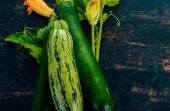
 27
27








:max_bytes(150000):strip_icc():format(webp)/Salad-Burnet-589a2dc43df78caebc55d423.jpg)

Invasive plants are Earth's way of insisting we notice her medicines. Stephen Herrod Buhner
Everyone learns what works by learning what doesn't work. Stephen Herrod Buhner
 4
4




 7
7




“All good things are wild, and free.” Henry David Thoreau
 11
11





~ jean (self-learner, homeschooling mom, DIY'er)
Teach the next generation by teaching them to love learning | https://selfeducatingfamily.com/
 1
1




Jean Rudd wrote:
I give mine neglect and no water in clay soil.
It's my space, my mess.
If you don't like it, don't come in.
 6
6




 4
4




Kaarina Kreus wrote:In the North: carrot, parsnip, black root, oatroot
"Also, just as you want men to do to you, do the same way to them" (Luke 6:31)






 8
8




"Also, just as you want men to do to you, do the same way to them" (Luke 6:31)
 7
7




Loretta Liefveld wrote:
Jean Rudd wrote:
I give mine neglect and no water in clay soil.
Wondering how difficult it is to dig up the roots when they are growing in clay soil. I keep wanting to grow them, but I just think it would be too difficult.
~ jean (self-learner, homeschooling mom, DIY'er)
Teach the next generation by teaching them to love learning | https://selfeducatingfamily.com/

 6
6




Jean Rudd wrote:
Loretta Liefveld wrote:
Jean Rudd wrote:
I give mine neglect and no water in clay soil.
Wondering how difficult it is to dig up the roots when they are growing in clay soil. I keep wanting to grow them, but I just think it would be too difficult.
My jerusalem artichoke roots are about a full shovel head (8") down -- I probably planted about 1/2 shovel (4") down. I water mine deeply when digging up if I have trouble getting to them. If you are worried about missing some of them (which happens often) you can try to contain them by planting a deep container. But I bet they will find a way out. The ones I have trouble getting out are under the driveway. I think there is more moisture trapped there and it has a sandier base than the natural clay soil.
I found that they grow better than my potatoes in the clay soil, which I found difficult to dig up. (Trying above ground methods now!) And it makes sense that sunchokes seem to grow better than potatoes for me since sunflowers are one of those deep-rooted, "bring up the nutrition from poor soils" type of plant.
Working toward a permaculture-strong retirement near sunny Sperling.
 8
8




Jean Rudd wrote:Great List!
But here's one to add to your list: Jerusalem artichoke (neither from Jerusalem nor an artichoke) a.k.a. a sunchoke... This spreads like crazy (aggressive) from a single bulb/root. Not sure what the right conditions are. I give mine neglect and no water in clay soil.
Destruction precedes creation
 5
5




M Wilcox wrote: advise me on how I can eat
~ jean (self-learner, homeschooling mom, DIY'er)
Teach the next generation by teaching them to love learning | https://selfeducatingfamily.com/
 4
4




Loretta Liefveld wrote:
Jean Rudd wrote:
I give mine neglect and no water in clay soil.
Wondering how difficult it is to dig up the roots when they are growing in clay soil. I keep wanting to grow them, but I just think it would be too difficult.
Together is our favorite place to be
 5
5




Inge Leonora-den Ouden wrote:
Kaarina Kreus wrote:In the North: carrot, parsnip, black root, oatroot
Carrots and parsnips are not perennial, but bi-annual (first year they make the root, second year flowers and seeds).
What do you mean by 'black root'? Can you give the botanical (Latin) name?

 10
10




- Tim's Homestead Journal - Purchase a copy of Building a Better World in Your Backyard - Purchase 6 Decks of Permaculture Cards -
- Purchase 12x Decks of Permaculture Cards - Purchase a copy of the SKIP Book - Purchase 12x copies of Building a Better World in your Backyard






 7
7




Jason Learned wrote:
Inge Leonora-den Ouden wrote:
Kaarina Kreus wrote:In the North: carrot, parsnip, black root, oatroot
Carrots and parsnips are not perennial, but bi-annual (first year they make the root, second year flowers and seeds).
What do you mean by 'black root'? Can you give the botanical (Latin) name?
I grow this as well, and its cousins, purple and meadow salsify. The latin name for Black Salsify is: Pseudopodospermum hispanicum.
I've had some come back for 5 years and bloom every year. So it seems pretty perennial as far as eating the leaves go, but if you pick the root you'll have to plant some seeds. I'm not sure if you just leave a piece of root if it will work. If you try it let me know.
"Also, just as you want men to do to you, do the same way to them" (Luke 6:31)
 8
8




$10.00 is a donation. $1,000 is an investment, $1,000,000 is a purchase.
 11
11




 11
11




 11
11




Ok, Scorzonera is perennial, not biennial. I had some for a decade in one spot. The german name for it means "Black Root" and it isn't a salsify at all, its scorzonera. I saw the pictures, of "black salsify" and it is scorzonera! To cook it, you parboil it, and then rub or grate off the black outer part of the root skin. You have to parboil, because the white "milk" or scorzonera juice is like glue and it will turn your fingers yellow for a couple of days. Boiling for a minute clots it and you avoid the mess. What I did to replant is sometimes grow from seeds but mostly, replant the top with 1 to 2 inches of root attached (if your top has several buds on it, you can even divide it like you would with rhubarb, I usually divide in 2 when this is the case. The roots by the way go down a foot and a half or so into the ground, it is a real pain to dig them out of clay soil. Scorzonera are loved in parts of Germany and Holland. You buy them in glass jars.Inge Leonora-den Ouden wrote:
Jason Learned wrote:
Inge Leonora-den Ouden wrote:
Kaarina Kreus wrote:In the North: carrot, parsnip, black root, oatroot
Carrots and parsnips are not perennial, but bi-annual (first year they make the root, second year flowers and seeds).
What do you mean by 'black root'? Can you give the botanical (Latin) name?
I grow this as well, and its cousins, purple and meadow salsify. The latin name for Black Salsify is: Pseudopodospermum hispanicum.
I've had some come back for 5 years and bloom every year. So it seems pretty perennial as far as eating the leaves go, but if you pick the root you'll have to plant some seeds. I'm not sure if you just leave a piece of root if it will work. If you try it let me know.
Hi Jason. I agree with you. Although officially the (black) Salsify is bi-annual, it comes back from the (forgotten) roots and acts as if it's a perennial. I have them in my allotment garden too. They are called 'schorseneren' in Dutch (like Scorzonera).
 8
8





ah
 9
9




Celtic/fantasy/folk/shanty singing at Renaissance faires, fantasy festivals, and other events in OR and WA, USA.
RionaTheSinger on youtube.
Pop-up garden/vintage+ yard stand owner.
 7
7




 1
1




Anthony Powell wrote:Dahlias are also perennial edibles, originally grown for their tubers before Europeans became besotted by the flowers. Nice fried or roast, slices keep their crispness in stir-fries. Ray florets also goodin salads.
I'm only 65! That's not to old to learn to be a permie, right?
 3
3




Jane Mulberry wrote:
I'd like to try dahlias. I read that there's quite a range of flavours depending on the variety, some taste good, others don't. Are there any you recommend?
 ); you don't see it about much. I enjoy eating that, and I'm able to minimise slug damage. I don't know if there's much between them, Lubera had some on sale - seem to have stopped, maybe they've realised lots of varieties can be eaten. Go for large-growing sorts for bigger tubers, easier to peel. Maybe the ray florets will give a clue as to root flavour.
); you don't see it about much. I enjoy eating that, and I'm able to minimise slug damage. I don't know if there's much between them, Lubera had some on sale - seem to have stopped, maybe they've realised lots of varieties can be eaten. Go for large-growing sorts for bigger tubers, easier to peel. Maybe the ray florets will give a clue as to root flavour.
| I agree. Here's the link: http://stoves2.com |







